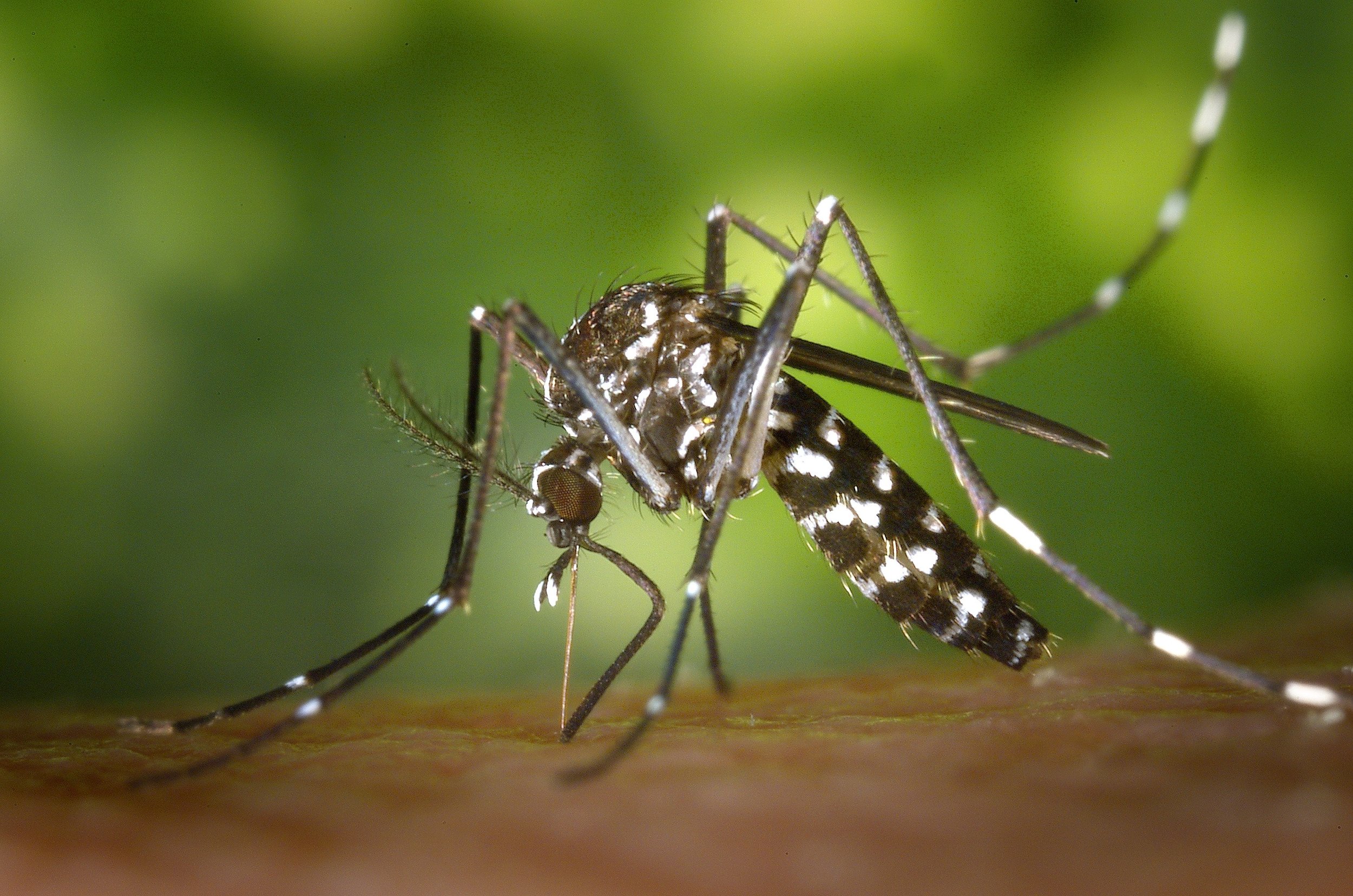No one likes mosquitoes! They're annoying, ugly and the itchy welts left in their wake can be so uncomfortable, they might cause you to descend into madness. Other than being a food source for certain fish, mosquitos serve no real purpose in our ecosystem and generally have zero redeeming qualities. But mosquitoes aren't the only critters you should be concerned about. Ticks have become a source of great concern as well, particularly in recent years as the deer population has increased. If you thought mosquitoes and ticks were bad before, hang on to your bug spray, because I've got some bad news for you.
In early May, the Center for Disease Control issued a report revealing that mosquito and tick-related diseases have tripled since 2004. Diseases like Zika, West Nile, Lyme disease and others have reached alarming rates with over 640,000 cases being reported between 2004 and 2016. With summer fast approaching, it's time to start thinking about ways to protect yourself and your family. However, many effective insect repellents contain the potentially harmful pesticide DEET, which can cause a host of adverse health effects.
In recent years, many companies have started producing natural and non-toxic alternatives to traditional insect repellent. Like conventional bug sprays, not all natural repellents are effective, and those that are, are not 100% effective and may need to be reapplied more frequently-- but they can help tremendously to keep insects at bay. Here's what you should look for:
Natural Repellents
Certain essential oils and plants are said to deter mosquitoes and ticks. While there is some speculation as to just how effective certain natural deterants, they include:
- Oil of lemon eucalyptus- This oil is said to be as effective as DEET in concentrations of 30% or higher. It is effective in repelling both mosquitoes and ticks.
- Clove oil- While effective at repelling insects, make sure to dilute this oil as it can irritate the skin
- Rose Geranium- Has proven particularly effective in repelling ticks.
- Cedarwood oil- Said to repel both ticks and mosquitoes, though there has been some dispute about whether it is as effective in repelling mosquitoes
- Lavender oil- Effective in repelling both mosquitoes and ticks, plus, it smells lovely! :)
- Lemongrass- Works well at repelling insects, but best when mixed with other oils
- Citronella- Perhaps one of the most well known and effective natural insect repellents. If you plan on making your own concoction, consider using this oil!
- Tea Tree Oil- Repels insects, but can also be used to treat painful and itchy bites
- Thyme, Basil, Peppermint- Not effective enough on their own, but add extra protection in a mixture
diy insect repellents
Mosquito repellent
30 drops of lemon eucalyptus oil
1 teaspoon of vanilla extract
4 ounces of Witch Hazel or vodka
Directions: Combine all ingredients well in a jar and transfer to a spray bottle (preferably a glass, amber colored bottle, which will extend the life of the mixture). Spray on your skin and clothes. This will protect you for 4-6 hours!
Tick Repellent (pet safe!)
40-50 drops of Rose Geranium Oil (dilute for use on children)
2 tablespoons Witch Hazel
1/2 cup of distilled water
Directions: Combine the ingredients well and store in a dark colored glass spray bottle. The mixture will last approximately six months. Reapply when the scent becomes faint (approx 4 hours).
what to buy
While some people opt to make their own concoction of essential oils for homemade insect repellents, many brands contain some variation of these common ingredients and take a lot of the guesswork out of it. Here are some brands to consider for mosquito and tick protection:
- Cedarcide $2.99- $29.95
- Hollow Ridge Tick and Biting Bug Repellent $28
- Babyganics DEET-Free Natural Insect Repellent $19 (2 pack)
- Osana All Natural Mosquito Repellent Soap $24.99 (4 pack)
- Badger Anti-Bug Shake & Spray $12.39
- Erin's Faces Deet-Free Mosquito Repellent $7.50
- Skincando Combat-Ready Bug Repellent $20.39
- The Halliburton Soap Company Deep North Spray $7.95- $10.95
- Boericke and Tafel Ssssting Stop Topical Gel (post bite relief) $11.88
What other precautions can I take?
In addition to insect repellent, there are a number of additional precautions you can take to help you decrease your chances of being bitten:
- Wear loose-fitting clothing with long sleeves and covered legs when possible
- Skip the perfume. Certain scents attract insects
- Avoid areas with standing water, and try to remove any standing water close to your home
- Use a fan! Mosquitoes aren't good at flying in windy environments, so having a fan nearby can help keep them away
- Get a lemon eucalyptus plant for your home. Mosquitos hate the smell!
- Use a diffuser in your home, with a mixture of some of the oils mentioned above. (ie. 8 drops each of Citronella, lavender and tea tree oils) the scent will drive mosquitoes away
- If you've been in a wooded area, or your skin has been exposed to outdoor plant life, make sure to do a thorough tick check on yourself, your family and your pets every day.
When should I use DEET?
Though DEET is a pesticide and all around controversial ingredient, if you are traveling to an area with a large mosquito population or an area in which mosquito-borne illnesses are common, it is advisable to use a product containing DEET. These products are still most effective at repelling insects and last longer than other non-DEET containing products. Check out this handy usage guide from the Environmental Working Group. Try to limit the number of days you use these products though, as prolonged exposure can cause skin irritation and even neurological issues.
Do you have a DIY recipe or insect repellent you'd like to recommend that wasn't listed above? Let me know in the comment section!









